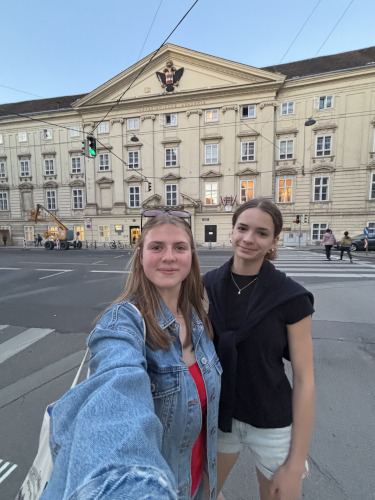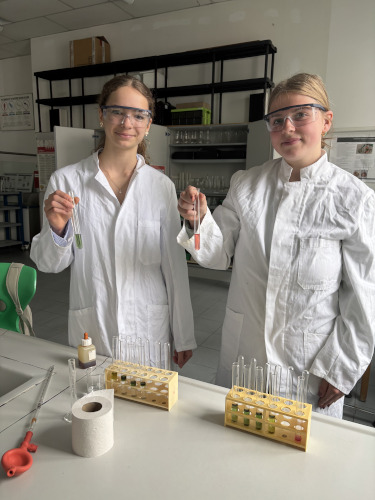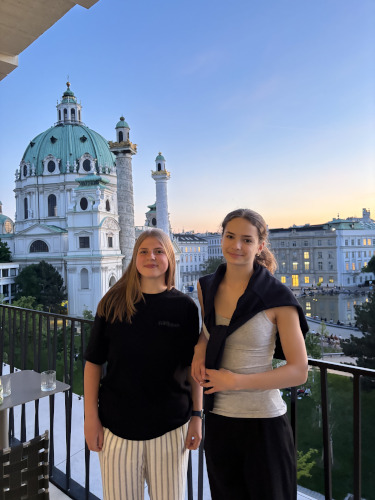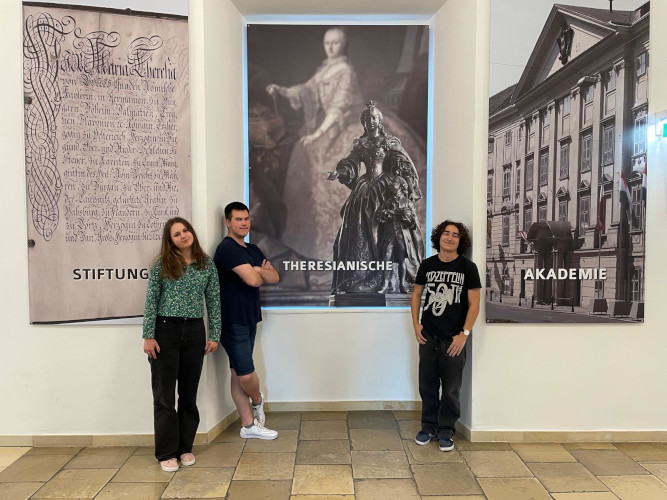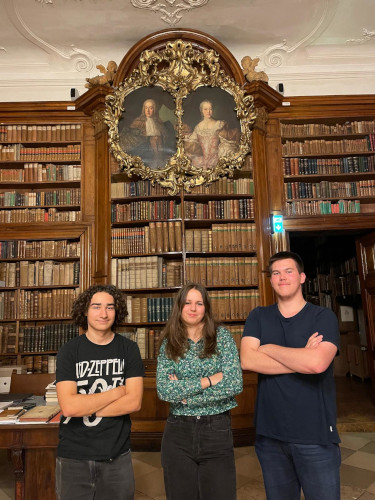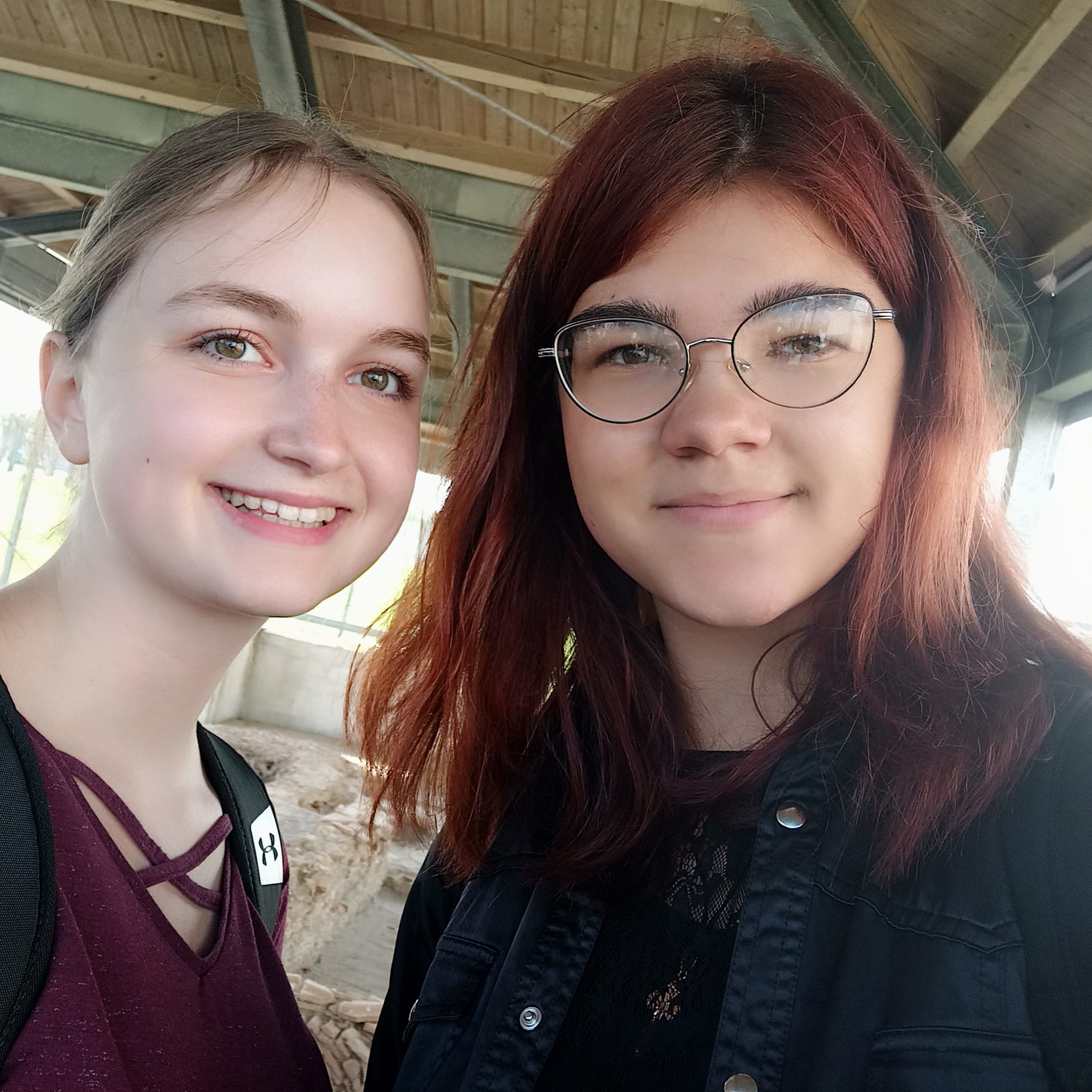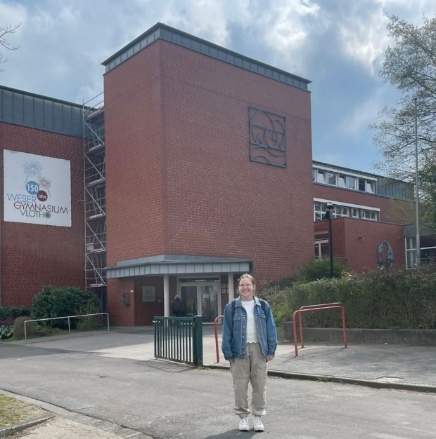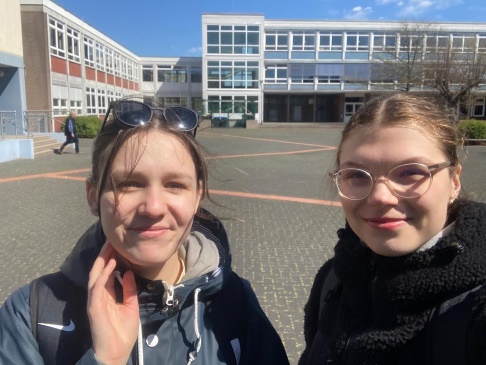Long-term mobility of students to Vienna (Austria) 2025
2024-1-LV01-KA121-SCH00022238022.04. - 08.06.2025.
Participants: Aiva Rabāce and Nora Smaļinska (10.CS)
Aiva and Nora studied at the Gymnasium der Stiftung Theresianische Akademie Wien and lived in the school's boarding house as part of an Erasmus+ mobility project.
The students are delighted with the opportunity provided by the Erasmus+ project, as the Theresian Academy has a strong focus on modern teaching approaches. Textbooks are used electronically, facilitating the learning process for the students. The school assesses student participation in lessons, which motivates them to pay more attention and engage in lessons, there are frequent presentations and oral tests, which develop speaking skills, cooperation and encourage them to be more open, and they always have the opportunity to actively express their opinions and debate. During the project, several concepts and definitions in German were acquired through the learning process, e.g. in the chemistry lessons, where the experiment on the pH level scale was given a step-by-step workflow, the German names of chemical utensils and units of measure had to be got used to, which led to the acquisition of new vocabulary related to the students' chosen advanced subjects and which was interesting to learn through practical activities. Similarly, in biology, the pupils were able to deepen their knowledge of ecosystems, a topic already covered in Latvia, by learning and understanding definitions in a foreign language. Once a week, the girls had the opportunity to attend a German language course, where they reinforced their previous knowledge in writing and expressing opinions, as well as developing their reading and listening skills.
Living in a boarding house was a new and valuable experience for both project participants. The boarding school was located one floor above the other classrooms.
Aiva: "The people in charge of the boarding house were warm, open and helpful and always made us feel at home. If you had something on your mind, you could go and talk to them, they were always open for a chat."
Nora: "I found it very practical because there was always the opportunity to socialise, meet new people and spend time with other pupils, for example playing board games. I always felt safe because I knew there were people around to support and help."
In their free time, the pupils explored Vienna, its architecture, culture and traditions. During the holidays, the girls also had the opportunity to take part in activities offered by the school, such as visiting the Vienna History Museum, one of the main UN buildings, and other Austrian cities such as Graz to see its most important and famous sites.
Aiva: "Participating in this great Erasmus+ mobility project gave me the valuable insight that when learning a foreign language, it is important to be in an environment where the language is the national language for a longer period of time, because in a German-speaking environment you can not only improve your knowledge and skills of the foreign language and learn new words and colloquial expressions by communicating with native speakers, but also gain insight into everyday customs, traditional cuisine, culture and traditions."
Nora: "This experience has not only given me the opportunity to improve my German language skills and to communicate with people in and outside school on a daily basis, but also to feel confident and part of a different culture. During the project I appreciated how diverse and rich the country is, from the mountain scenery to the musical traditions, which were particularly evident in Salzburg, Mozart's hometown. Another major benefit has been the ability to adapt to a new environment and culture, I have become more open and confident."
